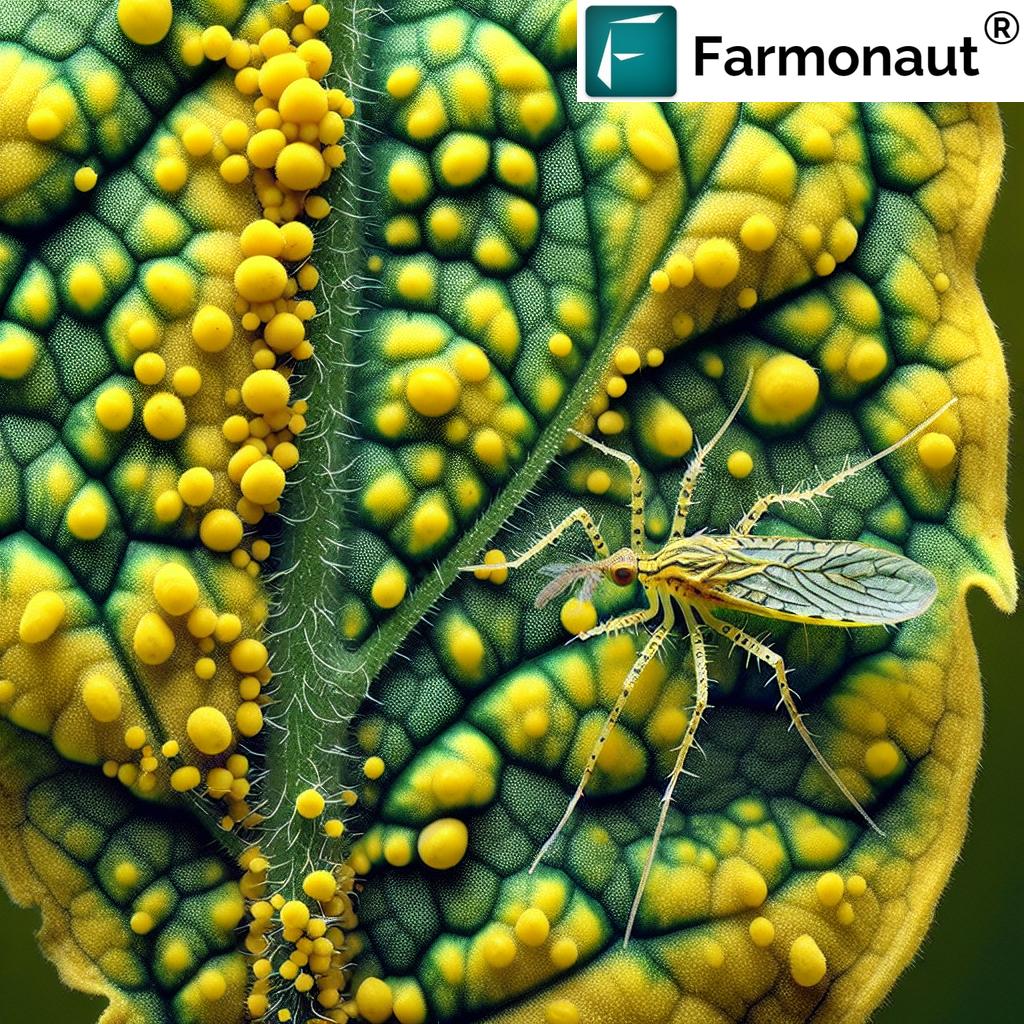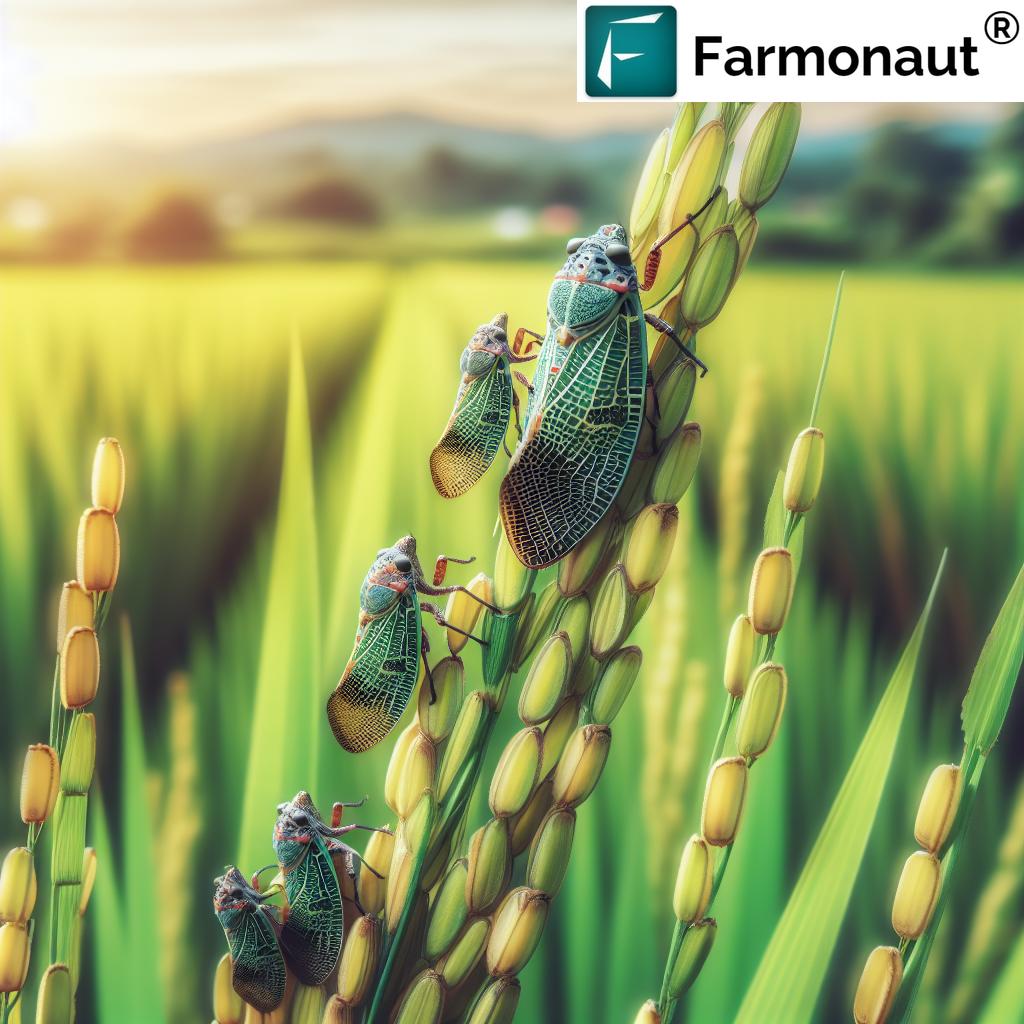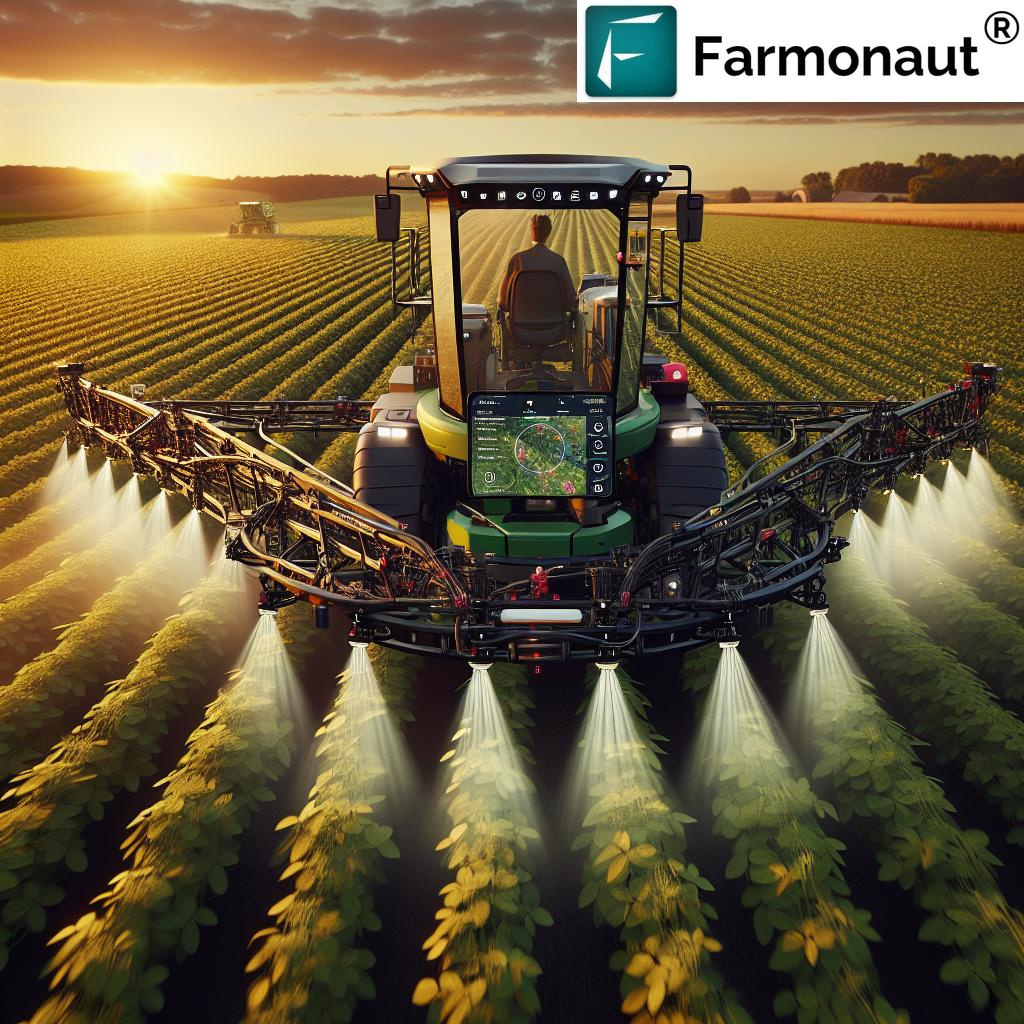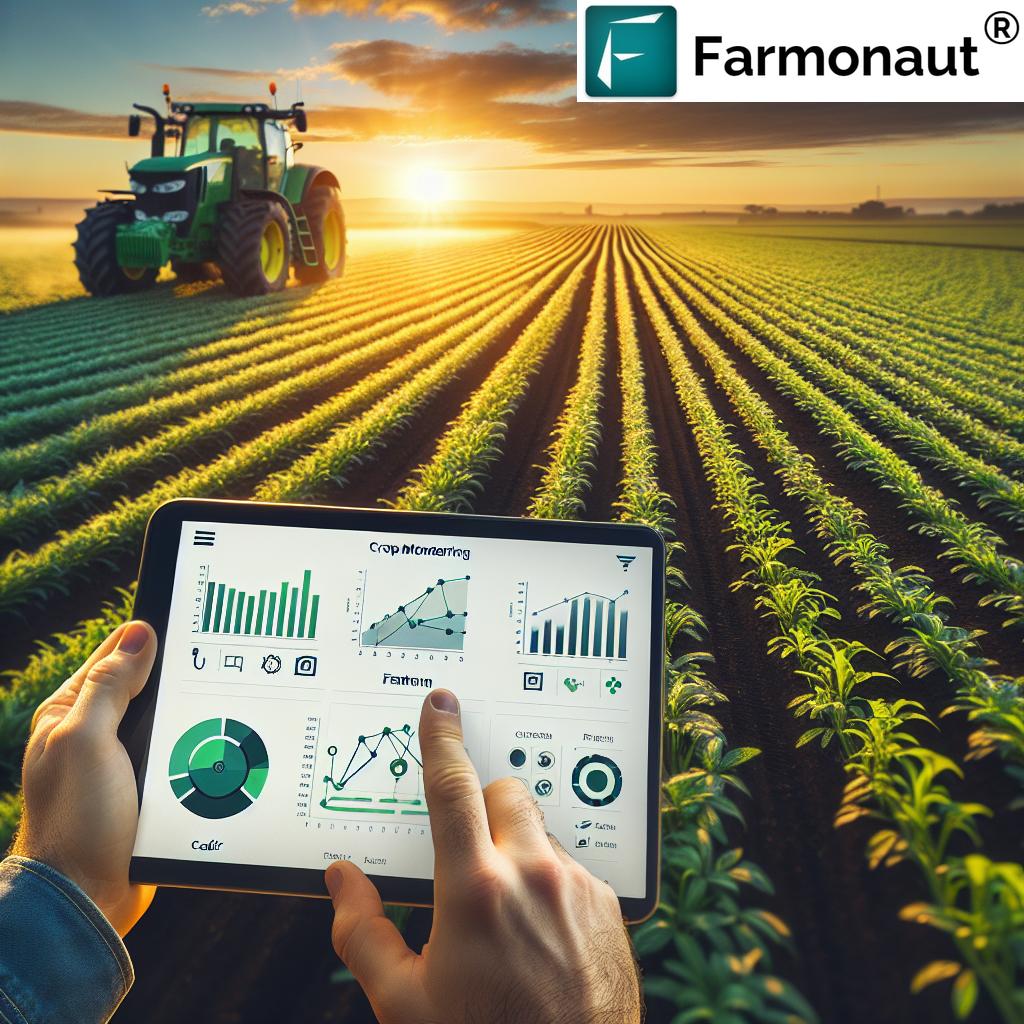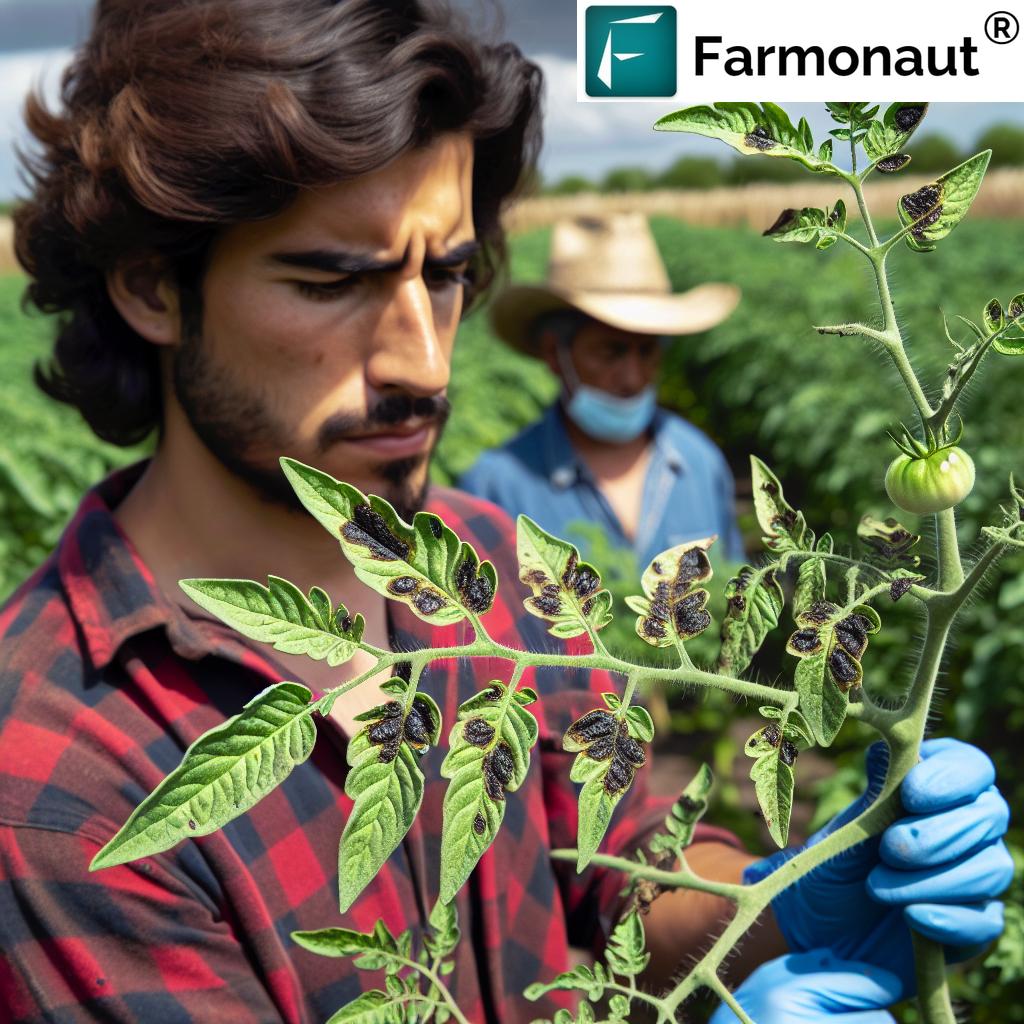Aphids on Bok Choy: Hydroponic & Artichoke Control – Precision Pest Management Insights for 2025
“Aphids can reduce hydroponic bok choy yields by up to 40% without precision pest management solutions.”
Introduction: Aphids on Bok Choy and Artichokes – Why 2025 Changes the Game
Aphids remain one of the most persistent pests threatening vegetable production globally. As 2025 ushers in new advancements, the picture of pest management has notably changed for intensive crops like bok choy in hydroponics and artichokes. The convergence of precision agriculture, sustainable biological control, and environmental monitoring empowers growers to effectively address aphid infestations while supporting environmental and economic goals.
Bok choy (Brassica rapa subsp. chinensis) and artichokes (Cynara cardunculus var. scolymus) are both valued vegetable crops, cultivated for their nutrition and high market demand. However, their susceptibility to aphids—the green peach aphid (Myzus persicae), cabbage aphid (Brevicoryne brassicae), and the foxglove aphid (Aulacorthum solani)—poses significant challenges, particularly in soilless hydroponic systems and large-scale field production.
This comprehensive guide explores advanced, eco-friendly, and precise solutions for controlling aphids on bok choy and artichokes—from biological agents and high-tech sensors to future-ready crop breeding and real-time satellite monitoring systems such as those provided by Farmonaut.
Challenges & Impacts: Aphids on Bok Choy
Aphids on bok choy are a serious risk that cannot be underestimated, especially for hydroponically cultivated leafy vegetables. The green peach aphid and cabbage aphid are notorious for extracting phloem sap from young plants, weakening their defenses and causing leaf curling, stunted growth, and viral diseases such as turnip mosaic virus and cauliflower mosaic virus. In extreme cases, unchecked infestations lead to yield losses exceeding 40%.
- Rapid Growth Cycles: Bok choy’s fast production cycles can inadvertently encourage aphid population explosions, especially in nutrient-rich hydroponic setups.
- Closely Packed Plants: The dense arrangement allows aphids to quickly spread from plant to plant, overwhelming the system.
- Viral Transmission: Aphids not only weaken plants physically but also act as vectors for viral diseases that devastate brassica crops.
- Resistance Concerns: Frequent use of broad-spectrum chemicals in conventional farming enhances aphid resistance and raises food safety questions about pesticide residues.
Hydroponics in 2025 demands smarter, more sustainable, and highly-efficient pest management for bok choy—a crop prized for its nutritional value and rapid turnaround.
Tip: Use Farmonaut’s platform (see app options above) to receive real-time environmental and aphid monitoring alerts for hydroponic cultivation.
Hydroponic Bok Choy: Aphid Management Revolution
In hydroponic systems, aphid outbreaks are especially problematic. Traditional chemical controls not only risk contamination of nutrient solutions but are also less effective due to the increased resistance among aphid populations. A 2025 grower’s toolkit for bok choy success includes integrated pest management (IPM), biological controls, and technological interventions—all focused on minimizing residues, safeguarding crop health, and maintaining rapid growth cycles.
Biological Control Agents: The Backbone of Hydroponic Aphid Management
- Lady Beetles (Coccinellidae): Efficient predators, they adapt well to controlled hydroponic environments and feed voraciously on most common aphids.
- Lacewings (Chrysopidae): Their larvae target both adult and juvenile aphids, reducing populations in dense plant settings.
- Parasitic Wasps (Aphidius ervi): Target aphid colonies inside greenhouses or vertical farms; parasitized aphids die, halting further reproduction.
Biological agents are naturally compatible with soilless hydroponic setups and don’t interfere with nutrient or microbial balance.
IoT-Driven Environmental Monitoring & Applied Precision
2025 marks the rise of real-time, IoT-based monitoring systems for hydroponic pest management. These systems employ:
- Humidity & Temperature Sensors: Aphid reproduction rates soar in high humidity; automated alerts help growers swiftly deploy biocontrols.
- NDVI & Spectral Analysis (via Satellite): Detect plant stress “hot spots” associated with incipient aphid colonization for targeted action.
- Image-Based Pest Scouting: Cameras paired with machine learning detect early aphid signs, triggering AI-powered interventions.
Farmonaut’s Jeevn AI Advisory System and API allow seamless integration of such monitoring, helping hydroponic bok choy growers maintain a proactive defense against pests.
Physical Barriers & Innovative Disruption
- Insect-Proof Screens: Limit aphid entry in greenhouses and vertical farms—cost-effective and resilient.
- Reflective Mulches: Disrupt host-finding behavior, confusing aphids and reducing colonization rates.
- Optimal Airflow: Lower humidity, thereby slowing aphid population growth; automated fans controlled by sensor data fine-tune the environment.
These sustainable practices are increasingly adopted for bok choy in hydroponics because of their compatibility with food safety and environmental requirements.
Aphids on Artichokes: Field and Controlled Strategies
Artichokes remain vulnerable to aphid infestations, especially in traditional field and emerging protected cultivation environments. The foxglove aphid and green peach aphid are the principal threats—diminishing plant vigor and bud quality, and making robust pest control essential for marketability and profitability.
“In 2025, targeted biocontrols in artichoke fields achieved 92% reduction in aphid populations using sustainable methods.”
Artichoke Field Management: Integrated Approaches
- Resistant Cultivars & Crop Rotation: Modern breeding programs have released aphid-resistant artichoke cultivars, reducing reliance on chemicals and promoting resilience.
- Habitat Diversification: Flower strips along field margins attract and sustain natural aphid predators, bolstering landscape-scale biological control.
- Targeted Biopesticides: Use of neem-based sprays, insecticidal soaps, and horticultural oils achieves aphid reduction without leaving harmful residues and with minimal impact on beneficial insects.
- Alarm Pheromones & Behavioral Deterrents: 2025 innovations include applying synthetic aphid alarm pheromones to disrupt colonization patterns and encourage dispersal before populations peak.
Sustainable pest management in artichoke fields aims to reduce environmental impact and prevent the build-up of resistant aphid populations.
Protected Environments: No-Chemical Approaches
- Physical Removal: Spot-application of water sprays or vacuum devices in greenhouses for small-scale, high-value artichoke crops.
- Sticky Traps & Visual Lures: Placed above canopy level, attract flying aphids and limit colonization bursts.
- UV-Light Treatments: Emerging in 2025 as an eco-friendly, non-residual strategy for sterilizing aphid populations on contact without affecting crop or environment.
Such non-chemical strategies are increasingly embraced as consumer demand for chemical residue-free produce rises and regulatory standards become more stringent.
Want to ensure full traceability of your artichoke crop from seed to shelf while monitoring pest management practices?
Explore Farmonaut’s blockchain-based traceability solutions. These tools build consumer trust and enable transparency about your sustainable pest management methods.
Advanced Aphid Management Strategies: Hydroponics vs. Artichoke Cultivation (2025)
Choosing the right approach depends not just on the crop (bok choy in hydroponic systems or artichoke in fields/greenhouses) but also on balancing efficacy, sustainability, and precision. Here’s a practical comparative guide:
| Management Technique | Technology/Tool Used | Estimated Efficacy (% Aphid Reduction) | Sustainability Rating | Precision Level | Suitability |
|---|---|---|---|---|---|
| Biological Control | Lady beetles, Lacewings, Parasitic wasps | 85–92% | High | Medium | Both |
| AI-Powered Monitoring | Image analysis, IoT sensors, satellite data | 78–95% | High | High | Hydroponic Bok Choy |
| Eco-Friendly Sprays | Neem extracts, horticultural soap/oils | 60–80% | Medium–High | Medium | Artichoke |
| Integrated Pest Management (IPM) | Combination of biological, cultural, and monitoring tools | 90–96% | High | High | Both |
| UV-Light Treatment | Automated UV lamp systems | 75–88% | High | High | Hydroponic Bok Choy |
Precision Techniques & Innovations for 2025
Today’s aphid management arsenal leverages cutting-edge technology and sustainable practices—raising the bar for both hydroponic bok choy and artichoke production.
Machine Learning & Predictive Analytics
- Image Scouting: AI-driven camera systems recognize early-stage aphid clusters and trigger automated reminders or biological releases. Image scouting tools like those on Farmonaut increase efficiency and coverage for larger or remote operations.
- Predictive Outbreak Models: By integrating historical data, satellite health indices, and live environmental sensors, growers can predict when aphid outbreaks are likely—enabling proactive, cost-effective control measures.
For developers interested in integrating these capabilities, Farmonaut’s open API developer docs explain how to connect remote sensing, weather, and pest monitoring seamlessly into private management dashboards or apps.
Genomic Breeding & Resistant Cultivars
CRISPR and advanced genomic editing are revolutionizing crop breeding in 2025. Key targets include:
- Aphid-Resistant Bok Choy: Editing genes related to trichome density and glucosinolate production lowers aphid susceptibility.
- Robust Artichoke Varieties: Tightly regulated plant defense genes make new artichoke cultivars less attractive or nourishing for foxglove and green peach aphids.
The result is powerfully reduced infestation rates, decreased pesticide needs, and stabilized yields.
Environmental compliance is becoming a market standard. Ready to track the carbon footprint of your hydroponic or field-grown vegetables? Farmonaut provides satellite-based carbon footprint monitoring for sustainable agriculture initiatives—a critical component for eco-certification and export.
Farmonaut Monitoring & Advisory: Empowering Sustainable Pest Control
At Farmonaut, we combine satellite imagery, AI, and blockchain to support growers in their fight against aphids on bok choy and artichokes—no matter where or how they farm. Our solutions offer:
- Real-time Pest & Plant Stress Detection: Our satellite-based NDVI and multispectral analysis provide instant alerts on crop health anomalies, often indicative of new aphid infestations.
- AI-Based Advisory Systems (Jeevn): Get custom recommendations based on regional satellite data, historical patterns, and live pest monitoring—directly via app or web interface.
- Blockchain Traceability: Prove eco-friendly and sustainable management for regulatory compliance and consumer marketing.
- Fleet Management Tools: Monitor the deployment of biological agents, pest scouting teams, or eco-spraying equipment for large operations. Learn more about our fleet management tools for operational efficiency in pest management.
- Crop Loan & Insurance Verification: For growers requiring financial support, our satellite-based verification helps secure crop loans & insurance by reducing fraud risks, especially for high-value bok choy and artichoke operations.
All our tools are available through user-friendly Android, iOS, or browser/web apps, making high-tech aphid management accessible to every farmer.
Future-Focused Sustainable Practices: What’s Next?
The path ahead in aphid management for hydroponic bok choy and artichokes merges rapid technological advancement with a clear push for environmental responsibility. Key trends for 2025 and beyond:
Automation, Data-Driven Action, and Friendly Ecosystems
- Automated Biological Releases: Sensor triggers and drone/robot applications for biocontrol agent deployment increase coverage and precision.
- Multilayer Data Integration: Leveraging weather, satellite, and on-site sensor data for holistic, AI-powered pest risk assessment.
- Eco-Compatible Infrastructure: Integrating renewable energy (solar-powered monitoring stations), compostable mulches, and habitat corridors to support natural predators even in hydroponic facilities.
For commercial farmers scaling up operations, Farmonaut’s large-scale farm management suite offers all-in-one control for fields, greenhouses, or hydroponic systems—helping ensure seamless pest control while optimizing staff and resources.
This integrated approach—coupling timely disruptive intervention with sustainable and traceable practices—will define successful pest management for years to come.
FAQ: Aphids on Bok Choy & Artichokes
What are the main types of aphids affecting bok choy and artichokes?
The most common are green peach aphids (Myzus persicae) and cabbage aphids (Brevicoryne brassicae) on bok choy, with foxglove aphids (Aulacorthum solani) especially prevalent on artichokes.
Why are hydroponic systems particularly at risk of aphid outbreaks?
Hydroponic crops are tightly packed and grown in optimal, protected conditions—perfect for rapid aphid reproduction. The lack of soil also removes some natural predators, so close monitoring is essential.
What non-chemical options are most effective for aphid management in 2025?
Biological controls (lady beetles, lacewings, parasitoids), precision monitoring (sensors, AI-image analysis), physical barriers (screens, mulches), and enhanced resistant varieties are now the frontline approaches for both hydroponic bok choy and artichoke fields.
How do environmental sensors improve aphid control?
Sensors track humidity and temperature, which signal when aphid populations are likely to explode. They also automate alerts or actions, such as increasing airflow or scheduling biocontrol releases, maximizing efficiency and reducing pesticide applications.
Can Farmonaut support aphid management in small or large operations?
Absolutely. Our platform offers real-time satellite, sensor, and AI-powered advisory tools for operations of any size. APIs enable integration into existing practice management systems, and our solutions scale from a single farm plot to corporate-size vegetable operations.
Conclusion: Resilient, Technologically-Driven Aphid Management
In 2025 and beyond, protecting bok choy in hydroponics and artichokes from aphids hinges on adopting multilayer solutions: biological agents, environmental monitoring, and AI-powered action plans. Chemical controls are no longer the default but just part of a diversified integrated pest management (IPM) portfolio—which also includes genetic resistance, habitat management, and precision monitoring.
By combining modern technologies like satellite image analysis, advanced AI, blockchain traceability, and sustainable cultural tactics, growers can ensure healthy, high-value vegetable harvests with minimized environmental impact and market risk. These sustainable and precise approaches are the gold standard for anyone cultivating bok choy or artichokes—especially in soilless hydroponic systems or regulated field environments—now and in the future.
For a more detailed demonstration of satellite-driven pest monitoring or to see how our platform empowers agricultural resilience and transparency, you can view both our satellite-based crop health monitoring and AI-powered field productivity videos above.
Farmonaut Subscription Plans
To make satellite-driven insights and precision aphid/pest management tools more accessible and affordable, Farmonaut offers flexible plans for individuals, businesses, and large growers. Choose the best fit for your hydroponic, field, or mixed production systems—monitor nutrient balance, crop health, pest outbreaks, and verify sustainable practices all in one place.
Aphids on bok choy and aphids on artichokes represent ongoing challenges in modern, high-value vegetable production. With advanced pest management, robust growth monitoring, and eco-compatible solutions—2025 is the year to bring your crop protection into the future. Join the new standard of technology-driven, sustainable agriculture with Farmonaut.




